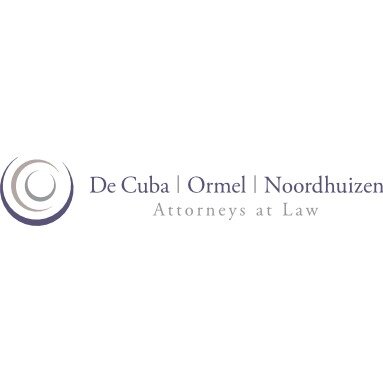Best Real Estate Due Diligence Lawyers in Aruba
Share your needs with us, get contacted by law firms.
Free. Takes 2 min.
Free Guide to Hiring a Real Estate Lawyer
Or refine your search by selecting a city:
List of the best lawyers in Aruba
About Real Estate Due Diligence Law in Aruba:
Real Estate Due Diligence in Aruba refers to the process of investigating a property before a transaction to ensure that all relevant information is disclosed and understood. This includes examining legal documents, permits, environmental issues, zoning regulations, and more to mitigate risks and make informed decisions.
Why You May Need a Lawyer:
You may need a lawyer for Real Estate Due Diligence in Aruba if you are buying or selling a property, entering into a lease agreement, or dealing with complex legal issues related to real estate transactions. A lawyer can provide guidance, review documents, negotiate terms, and protect your interests throughout the process.
Local Laws Overview:
Key aspects of local laws relevant to Real Estate Due Diligence in Aruba include property rights, land tenure, zoning regulations, environmental laws, and building codes. It is important to be aware of these laws to ensure compliance and avoid potential legal issues.
Frequently Asked Questions:
1. What is Real Estate Due Diligence?
Real Estate Due Diligence is the process of investigating a property before a transaction to identify any potential risks or issues.
2. Why is Real Estate Due Diligence important?
Due Diligence helps buyers and sellers make informed decisions, mitigate risks, and ensure compliance with laws and regulations.
3. What documents are typically reviewed during Due Diligence?
Documents such as title deeds, surveys, permits, environmental reports, contracts, and financial records are commonly reviewed during Due Diligence.
4. How long does Due Diligence typically take?
The timeline for Due Diligence can vary depending on the complexity of the transaction and the availability of information. It can range from a few weeks to several months.
5. Do I need a lawyer for Due Diligence?
While it is not required by law, having a lawyer experienced in Real Estate Due Diligence can help protect your interests and ensure a smooth transaction.
6. What are common issues uncovered during Due Diligence?
Common issues include undisclosed liens, zoning violations, environmental contamination, property disputes, and title defects.
7. Can Due Diligence be done remotely?
Yes, Due Diligence can be conducted remotely using digital tools, online databases, and video conferencing. However, in-person inspections may still be necessary for certain aspects of the investigation.
8. How much does Due Diligence cost?
The cost of Due Diligence can vary depending on the complexity of the transaction, the scope of work involved, and the fees charged by professionals involved in the process.
9. What happens if issues are uncovered during Due Diligence?
If issues are uncovered, parties may negotiate to address them through price adjustments, repairs, indemnities, or other agreements. In some cases, the transaction may be terminated if the issues are significant.
10. How can I ensure a successful Due Diligence process?
To ensure a successful Due Diligence process, it is important to start early, maintain open communication, work with experienced professionals, and conduct thorough research on the property and local laws.
Additional Resources:
For additional resources and information on Real Estate Due Diligence in Aruba, you can contact the Aruba Bar Association, the Aruba Chamber of Commerce, or consult legal professionals specializing in real estate law in the region.
Next Steps:
If you need legal assistance with Real Estate Due Diligence in Aruba, consider hiring a lawyer experienced in real estate transactions to guide you through the process, review documents, negotiate terms, and protect your interests. Conduct thorough research, communicate openly with all parties involved, and stay informed about local laws and regulations to ensure a successful transaction.
Lawzana helps you find the best lawyers and law firms in Aruba through a curated and pre-screened list of qualified legal professionals. Our platform offers rankings and detailed profiles of attorneys and law firms, allowing you to compare based on practice areas, including Real Estate Due Diligence, experience, and client feedback.
Each profile includes a description of the firm's areas of practice, client reviews, team members and partners, year of establishment, spoken languages, office locations, contact information, social media presence, and any published articles or resources. Most firms on our platform speak English and are experienced in both local and international legal matters.
Get a quote from top-rated law firms in Aruba — quickly, securely, and without unnecessary hassle.
Disclaimer:
The information provided on this page is for general informational purposes only and does not constitute legal advice. While we strive to ensure the accuracy and relevance of the content, legal information may change over time, and interpretations of the law can vary. You should always consult with a qualified legal professional for advice specific to your situation.
We disclaim all liability for actions taken or not taken based on the content of this page. If you believe any information is incorrect or outdated, please contact us, and we will review and update it where appropriate.
Browse real estate due diligence law firms by city in Aruba
Refine your search by selecting a city.










